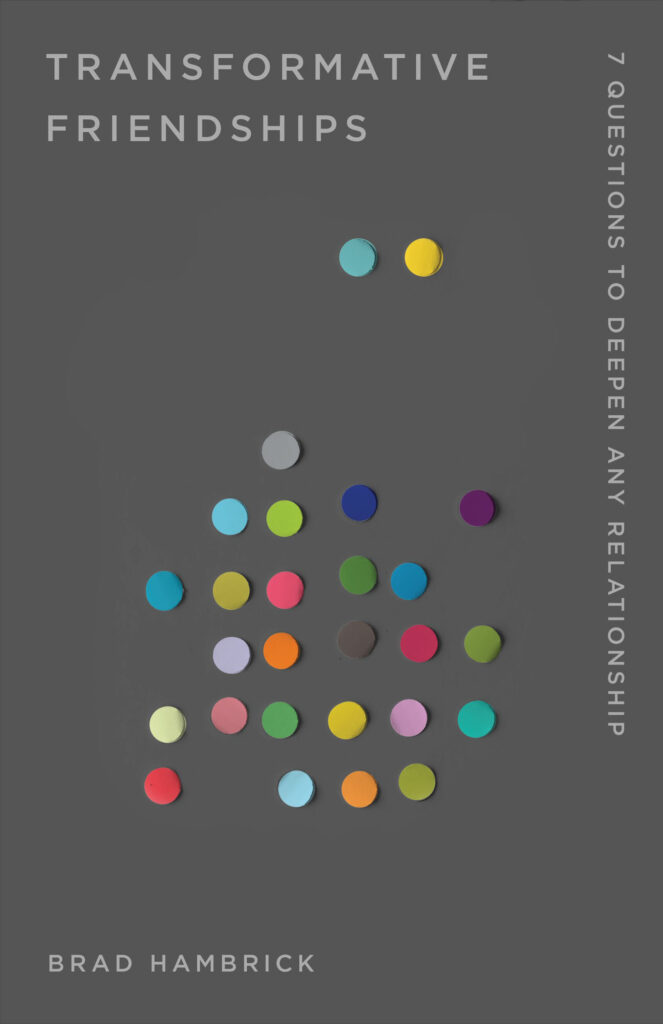Don’t worry—I’m not going to pit friendship against counseling, or vice versa. Both provide unique benefits that can enrich our lives. But too often when someone is struggling, we are prone to say they “need counseling” and neglect seeing that they also “need friendship.” That’s why I want to reflect on how counseling without friendship leaves a void. I want to elevate how we value “simple friendship.”
In his quest to understand what makes counseling effective, secular researcher Barry Duncan found that 40 percent of its effectiveness is determined by the quality of relational resources an individual has outside of counseling (see his book, The Heart and Soul of Change). A counselee is best set up for success if his or her life includes things like: quality friends, satisfying job, a clean home, supportive family, or enjoyable hobbies.
Friendships and meaningful opportunities to invest our time are something the church is uniquely positioned to provide. Again, friendship and counseling are not either-or. In seasons when we also need help from a trained counselor to sort through our struggles, Duncan’s statistic tells us that every member of a church who engages in counseling should get more from that experience because of their involvement at church.
Toward the end of a counseling relationship, I frequently ask people, “Who do you have in your life that you can talk to about this struggle? Who are you honest with and don’t have to pretend like everything is okay? Who asks you how you are doing and really wants to know the answer? Who can you be as honest with in day-to-day life as you’ve learned to be with me in recent weeks?”
Too often, the answer is: no one. We live in a day of superficial friendships. Even in church, people often feel lonely. The need for counseling escalates because that 40 percent effectiveness is deteriorating and counseling is less beneficial because people are unsure how to cultivate relationships that go past the surface.
If we want to be serious about both reducing the need for counseling and increasing its effectiveness, there is one significant thing we could do—teach people how to cultivate this missing piece of their lives. A big part of thriving, in the ways God created us to live, is learning to invest more meaningfully in quality friendships.
The church, when operating as God designed is precisely the place to do this. Where else in our culture do people meet regularly to:
- acknowledge their need for something outside of themselves.
- seek to grow in character and mutual support.
- commit to care for and serve one another in meaningful ways.
- interact regularly with the same people for years or decades.
- ask each other meaningful questions as part of growth groups.
The church is uniquely designed to provide these kinds of relationships.
For these reasons, if a church is seeking to start a counseling ministry (which is a good goal), its first focus should be on deepening and enriching its care between members. Otherwise, we are being foolish in two ways:
- We are neglecting the thing God has most called us to be as a church (i.e., the family of God).
- We are failing to provide something that would make counseling more effective.
Seeing the power and influence of simple friendships, even for complex problems, should be encouraging. As churches, we should step up to the challenge of creating a context where people can connect in meaningful ways.
I want to be careful not to devalue formal counseling. I am immensely grateful for the education and counseling experience I have received. I believe it does play an important role in understanding people’s struggles and helping them through many challenges. But my point here simply this: the church is the kind of community a professional counselor should encourage their clients to participate in to maximize the benefit of their care. The professional counselor should marvel at the “competitive advantage” of clients who are meaningfully involved in a church. The better we do as churches to cultivate meaningful friendships among our members, the more this will be true.
Here is another takeaway. Going to counseling without investing in meaningful friendships is like going to the dentist when you refuse to brush your teeth after eating chocolate covered caramels. It is not an either-or scenario—both practices are important. If counseling is beneficial, by all means pursue it. But if counseling is needed, also pursue the things that make counseling as effective as possible: meaningful friendships.
Transformative Friendships
Building meaningful friendships is not as easy as we wish it was. A culture that is lonelier and more disconnected than ever proves how hard it can be. In Transformative Friendships, counselor Brad Hambrick encourages readers to develop new rhythms, habits, and lifestyles that will shape and grow their relationships, both with casual acquaintances and closer friends.






